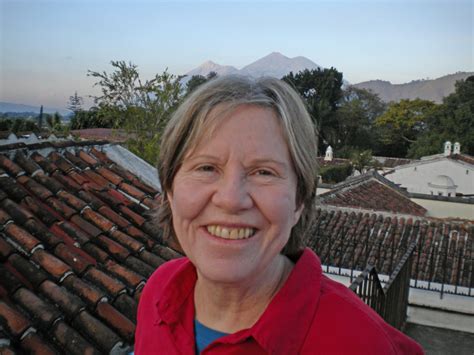A Quote by Stanislav Grof
Many instances exist of small children who seem to remember and describe their previous life in another body, another place, and with other people. These memories emerge usually shortly after these children begin to talk.
Related Quotes
To recognize that mystery, we must go down deep into ourselves, into that place where the walls of our being are layered with our own memories. Remember that, as in any pool, when we cast one pebble we will see many, many concentric circles. One memory begets another and then another, building into stories.
A Child of Happiness always seems like an old soul living in a new body, and her face is very serious until she smiles, and then the sun lights up the world. ... Children of Happiness always look not quite the same as other children. They have strong, straight legs and walk with purpose. They laugh as do all children, and they play as do all children, they talk child talk as do all children, but they are different, they are blessed, they are special, they are sacred.
It's enough for you to do it once for a few men to remember you. But if you do it year after year, then many people remember you and they tell it to their children, and their children and grandchildren remember and, if it concerns books, they can read them. And if it's good enough, it will last as long as there are human beings.
Each of us must come to care about everyone else's children. We must recognize that the welfare of our children and grandchildren is intimately linked to the welfare of all other people's children. After all, when one of our children needs lifesaving surgery, someone else's child will perform it. If one of our children is threatened or harmed by violence, someone else's child will be responsible for the violent act. The good life for our own children can be secured only if a good life is also secured for all other people's children.
Sisters, while they are growing up, tend to be very rivalrous and as young mothers they are given to continual rivalrous comparisons of their several children. But once the children grow older, sisters draw closer together and often, in old age, they become each other's chosen and most happy companions. In addition to their shared memories of childhood and of their relationship to each other's children, they share memories of the same home, the same homemaking style, and the same small prejudices about housekeeping that carry the echoes of their mother's voice.
There are so many shocking things. Is it more shocking that there are children sold into slavery in every city in the world and right under our noses or that there are villages in Nepal where there are no children left because they have all been kidnapped for sex trafficking, or that there are generations of slaves in some countries where indentured slavery passes from generation to generation and that kids grow into adults not knowing that another world - another life - exists?
Poverty cannot be accepted as a pretext and justification for the exploitation of children. It does not explain the huge global demand with, in many instances, customers from rich countries circumventing their national laws to exploit children in other countries. Sex tourism has spread its illicit wings wide, and paedophiles search for their victims in all parts of the globe. The problem is compounded by the criminal networks which benefit from the trade in children, and by collusion and corruption in many national settings.
The justification - the idea that we have a right to invade another country and determine another people's destiny - is frightening. And I fear really for the future of that occupation. What happens now, and twenty years from now, and forty years from now, given our case? People in the United States may feel like when we don't see it on CNN twenty-four hours a day, it sort of disappears. But it doesn't disappear for the people who have to live under occupation - and their children and their children's children.





































